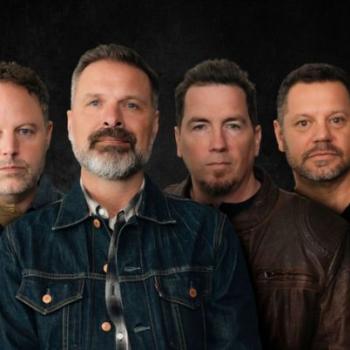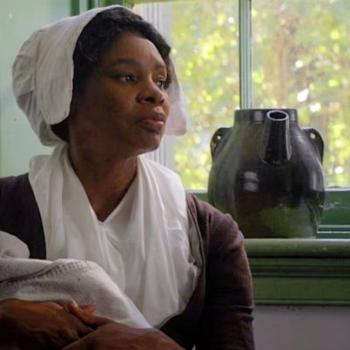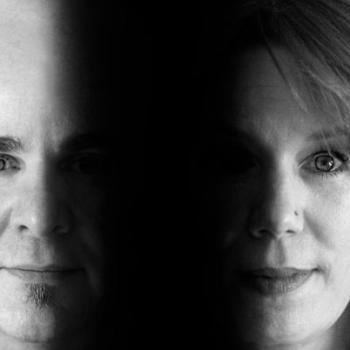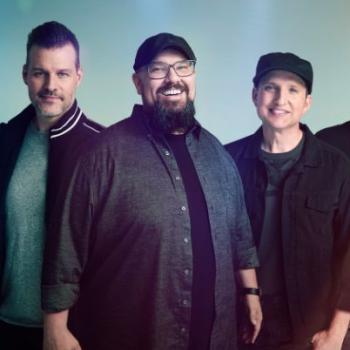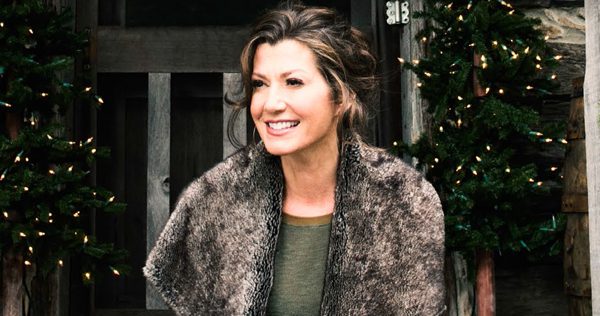 For those who know me, Amy Grant has always been a favorite, first inspiring my love of Christian music, which in turn provided a career path as a music journalist. As one industry insider told me, most of us currently in the industry can trace our paths back to her.
For those who know me, Amy Grant has always been a favorite, first inspiring my love of Christian music, which in turn provided a career path as a music journalist. As one industry insider told me, most of us currently in the industry can trace our paths back to her.
In December 2004, I had my second interview with Amy, this time gathering information for a 50th Anniversary retrospective of the magazine I was writing for, Christian Retailing. I could only include a few quotes in the magazine; however, the entire interview was a delight for me, especially hearing the behind-the-scenes decisions of the first CCM album I bought. I hope you enjoy reading it.
A lot of people take credit for discovering you. I’m not sure exactly how you got started so could you give me a brief recap of the events leading to your first signing?
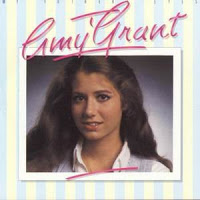
I started writings songs when I was 15. I have three older sisters and there were always people coming to the house. This one summer, these people came in that went to this hippie church in Nashville on music row. Every Saturday night, we’d go to the coffee shop on Music Row and hear a band called Dogwood. That was 1975. I was inspired to start writing songs myself. One of the guys I had met at the church was called Brown Bannister. At the time he wasn’t a producer; he was taking a class in production at Belmont College. He had a job at a recording studio and said, “Look Amy, I have free time at a recording studio.” I went into the studio with another friend and did about a dozen songs. I just did it for my parents. Brown said, “You ought to make some copies.” While he was making copies, a guy named Chris Christian walked in. Chris had just gotten a call from a record company in California. Chris said ‘I know Amy.’ (He had dated my older sister.) He called Word Records and asked, “Can I have the go-ahead to sign her?” They said “Yeah.” The guy at the record company was a fellow named Buddy Huie.
You’re credited for a lot of firsts, including the most mainstream exposure for gospel music when “Find A Way’ hit on the radio. Who was the architect of the Unguarded album and what were your feelings going into it? Did you know how drastically it would change things for you?
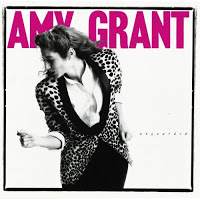
I felt like any song with a spiritual message had a greater impact if it were heard around a lot of songs about regular life. I just feel like if every song talks about Jesus, I feel like I don’t have any credibility as a human being. You start being the same message. I had a lot of really serious conversations with Dan Johnson. “I have got to broaden my musical base. I need a bigger context in which to sing songs about spiritual life.” That continues to be my beef with Christian records. Where’s the guesswork? To me, being the surprise ending or not everything being tied up in a neat little bow, is great. I made this record and, without my knowing it, Dan Johnson and Stan Moser went to A&M; Records. I was 24. They approached them and said, “We have an artist that delivers sales for us.” By then, I had a few albums that had gone platinum. “This is not a big risk for you. We would like to sign a contract with you to distribute her albums on a bigger basis. In an attempt to do right by our artist, we want to give her a bigger platform.” Word signed a distribution deal with A&M.; When it was time to re-sign, Word and A&M; both approached me. David Anderlee was the head of A&R.; I said, “We work well together.” I signed a simultaneous deal with both companies, which was unheard of because usually there wasn’t enough “pieces of the pie” to go around. That eventually played itself out and ran it into the ground.
Could you share a few of your favorite memories through the years?
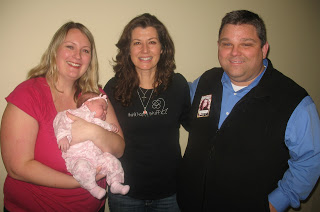
Every highlight has to do with people that I’ve met. Probably not people you would expect. Yes, I have met a lot of people whose work I admire, presidents, other musicians. But the real surprise has been the people who are normal, when they feel attached to your music, they let down their guard.
I have been involved in Make-a-Wish. They set me up with this girl named Stephanie Ball, who has cerebral palsy. I met her the first time when she was 13 years old. She wanted to spend the day with me. I asked her parents, “Would you strap her into my car and I’ll take her to the Sonic for a cherry Lime-aid?” I told her, “You should be a writer, you sound like Mark Twain.” I was so awestruck with her mind. Her vocabulary was phenomenal. I said, “I’m bowled over talking to you.” She responded, “Amy, I’m normal on the inside.” I kind of get a lump in my throat right now. That forever changed how I looked to a person with a handicap. She went to college. I went skiing with her family two years ago. I spoke at her high school graduation.
Another was when Vince and I first moved into the house we live in now, we were surrounded by moving boxes and pads of paper. I was pregnant with Corrina. It was sunset and Vince had fallen asleep. On top of a pile of papers was an envelope that looked like a child’s writing. I don’t know why I opened it. It said, “My mother is the most special person in the world. She’s turning 89 in a few days. Is there any chance you could call her?” I looked at the calendar and I said, “It’s today! I can’t believe it!” Vince woke up, and we were going to go to Belmont to meet the kids. But they all finished early, so our plans changed. I remembered I still had that letter. So I asked Vince, “Will you call this woman? Today’s her birthday.” He started calling her but couldn’t get through. In the meantime, I called my office and asked, “Will you search this woman’s information and tell me her address? What have we got to lose?” Her name was Dorothy Lee Stafford. We started driving toward her house and finally got her on the phone. Vince said, “Dorothy, this is Vince Gill, where are you?” She said, “I’m just sitting in my house by myself. Where are you?” He said, “Sitting outside in your driveway.” We walked in and she had pictures of Vince all over the house. We spent two hours with her. We heard all about her life story. We were getting ready to leave and the daughter that had written us this letter came in. She just bawled. The fact is – Vince and I got more out of the visit than anybody.
Dorothy said, “This was the most special birthday of my whole life.” Don’t you just hope with all that’s in you that that’s how God works? Of all the days to find that letter and then all of our plans fell through and we wound up in her living room.
Can you talk a little about your observation of the industry as a whole through the years? What have been some of the highlights? What have been some of the challenges/growing pains?
I think in the early days, I would say Mom and Pop bookstores that tried to provide a sense of community, a more relaxed setting than an actual church. Christian music started as such a grassroots industry. There were some towns that had a radio but a lot of them didn’t. It was these Christian Bookstores, coffee houses, that provided the connection. People came there because they had a sense of community.
I also think churches opening up their doors to provide a platform for artists, concert series. If you go play a union hall in a town, it costs a lot of money for the venue. So much in the early years of Christian music was done on a volunteer basis. Because the music touched a vital spiritual need, a lot of people did it for the love in it, thinking there was an eternal purpose. Before it was business, it came out of a sense of community. People are so encouraged by music in general, especially music with a spiritual basis. All of that came out of a hippie music festival type of thing. People would go and a lot of word of mouth communication.
Times change and life changes. The world that I grew up in, you can’t even find it in the lives of our children. I can sit around and grieve what they deal with every day or I can just say it’s a new world. Everybody has access to everything, good and bad. Everybody played the Grand Ole Opry if they were country because it was 100,000 watts Clear Channel. It was the mother church and everybody had to be there. Times have changed. It’s just growing and changing into what it is now. Now the biggest Christian bookstores aren’t owned independently, they’re chains. People’s lives are lot busier. Everybody’s accessible all the time. You cant’ wander into a place and sit around and talk for 2 hours. Five minutes into it, you’re getting a call on your cell phone saying “Don’t forget to pick up the milk.” I’m not bemoaning that.
I think the great thing right now is that young Christian artists and a lot of them are not signing with a big company. They would rather do independent records, sell their music through the internet. They can maintain a certain quality of life, make enough money to pay the bills and do music. Communicate a message through the songs they write. The era of a few people getting a whole lot of promotion is now giving way to a lot more bands getting a chance. That might be a return to how it used to be, more about word of mouth. Discover artists on your own instead of being forced down your throat.



